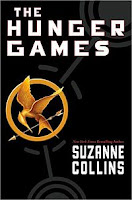After reading Jewel's excellent post, I wanted to add my two cents about editing.
With the possible exception of marketing, the most onerous task a writer faces is editing. I can pull a character out of a hat. Here’s one now – Ned. Setting – abandoned donut shop north of Muncie
Tell me you’re not dying to know what happens. I can write it. The only problem is that when I’m done, it will be riddled with errors. And when I go back to edit it, it will look just fine to me.
The reason is simple. As readers, we are trained to ignore the connective tissue of written language. Punctuation becomes invisible, pacing is ignored, anomalies are forgiven, and dialog tags fade into the background. And because all writers are readers, we fall into a trap. We overlook the same things. And when we make mistakes in the connective tissue of our own story, we don’t notice.
I’ll use a short story to illustrate my point.
Mounted – Chapter 1
Ned’s hands shook as he glued the beak onto the stuffed bat. “Damn, he shouted, throwing his tweezers onto the ground, realizing he had glued the beak onto the back of the bat’s head by mistake. “Damn post-apocalyptic word!”
__________________
Good, isn’t it? But there are problems. There is no close-quote after the first Damn. There’s no such thing as a post-apocalyptic word (unless there is), and bats don’t have beaks.
Mounted – Chapter 2
Oriole shivered, her ragged hoodie no match for the evening chill. If only her sisters had left Muncie before the troubles. If Robin and Grackle were here, surely one of them would know how to stat a fire.
Hugging her poncho tight, Oriole stepped gingerly around the piles of brand-new disposable lighters that littered the road like gemstones, shimmering in the sunrise.
Up ahead, she saw something flicker in an abandoned donut shop. It could be a campfire. She approached carefully. “It could be another gang of surfers,” she groaned, remembering her last encounter.
__________________
I know, right – you’re hooked. So hooked you might be willing to overlook the slovenly writing. You can’t stat a fire. And the pacing is off. First it’s evening, then three lines later it’s sunrise. Is she wearing a hoodie or a poncho? Surfers don’t form gangs. And you can’t groan something. Really, you can’t. And even if you could, you shouldn’t.
Mounted – Chapter 3
Ned was gluing the last tail feather when he heard the door chime. He turned away from the peacock as the girl entered. She was the first human he’d seen since….since the troubles began. “Damn Buffet Rule,” he gurgled, staring at her. She was gorgeous. Mid-twenties, maybe five foot two, mixed Scottish and Mexican heritage, judging by the poncho she wore and the pan of haggis she carried.
Oriole came forward and knelt by the fire. She rubbed her hands together
Ned carried the peacock to the display case, and set it next the owls and ducks and penguins, the product of his labor these long years. Then he approached her. He extended a hand but she cringed, spotting a distinctive feather that clung to his sleeve.
“Is that spotted owl?”
Ned beamed. “Do you do taxidermy too?”
Oriole shrieked as her eyes darted around the room. “You…you kill them.”
“Well, yes,” he said. “Otherwise they fuss when you try to stuff them.”
She shook her head sadly.
What’s wrong?
“Im an ornithologist.”
__________________
Problems? Actually, this part is pretty good if you can ignore the missing quotation marks, and the fact that you can’t gurgle words. Would the door chime still work? The word I’m needs an apostrophe.
Mounted – Conclusion
“I’m not currently in need of eye care,” Ned told her, eyeing her lustfully.
“Not ophthalmology,” Oriole said, “ornithology – I study birds, I love birds. I come from a long line of bird lovers. I could never love a man who, who, who…”
“Shh.” Ned put a finger on her lips. “You sound like that owl I strangled last week. Look, we might have our differences, but we can make it. At least we’ll have each other. We can forget about the zombies for awhile?”
Oriole pulled back. “There are zombies?”
“Probably not,” Ned said as he kissed her. “I mean, I haven’t seen any but you never know.”
“This is so wrong,” she said, kissing him back hungrily. “I could never love a man like you.”
“We’ll make it work,” he said, gingery removing her poncho and her hoodie, and setting her haggis aside.
“Tell me how this is going to end.” She tore at his clothes, spilling the contents of his pockets. Ear pins, wing screws, and spools of tail wire tangled with beak nuts of assorted sizes. “Tell me how this is going to end.”
Ned took her in his arms, remembering the title of his story.
__________________
Problems? How can he talk while kissing her? Seriously, there’s way too much kissing dialog here. Also, there’s no such thing as a beak nut.
OK, so how can we avoid an editing nightmare? Here are four ideas:
1) Go to the TOOLS bar in Microsoft Word, and turn on the GRAMMAR AND STYLE checker. It will drive you crazy. But it will save you grief.
2) Unless you’re willing to pay an editor, you’ll need some editing software. I like PerfectIt from Intelligent Editing. It will find mistakes you missed. At $49, it’s a bargain, and you can download a preview for free.
3) Read your story out loud. Read it slowly as if you were recording an audiobook. Also, try to sound like Morgan Freeman. Reading out loud keeps you honest. You won’t be able to ignore your mistakes.
4) Find a writing partner you can trust, someone who’s willing to look you in the eye and laugh uncontrollably at your story if that’s what’s called for. If they can’t do that, find someone else.













